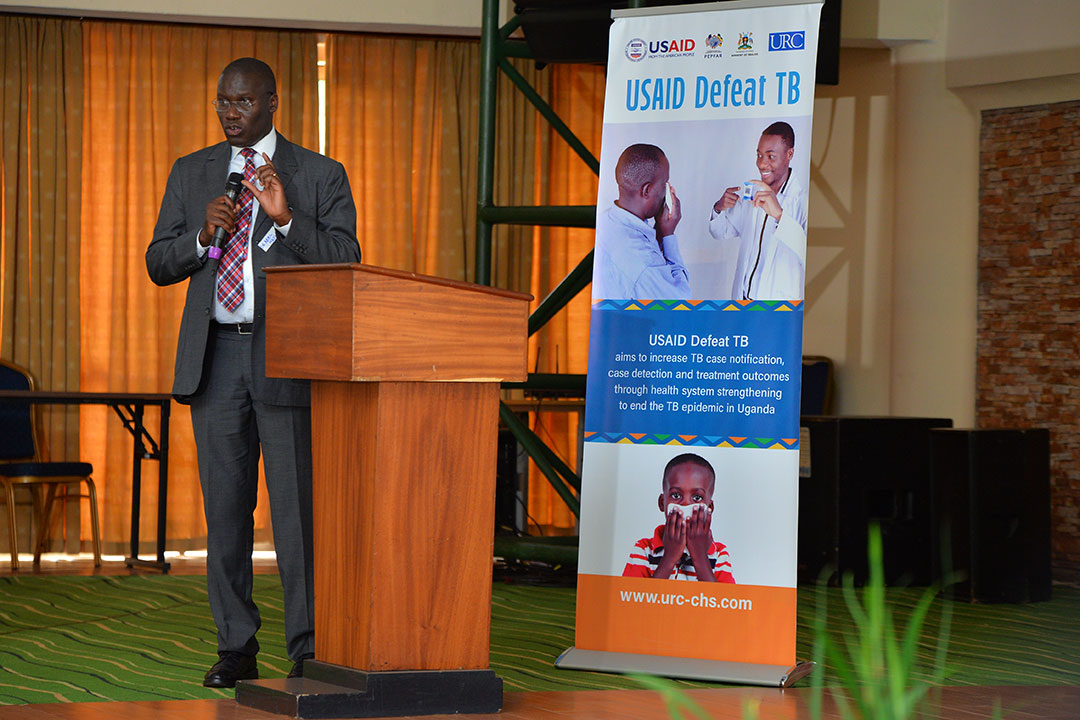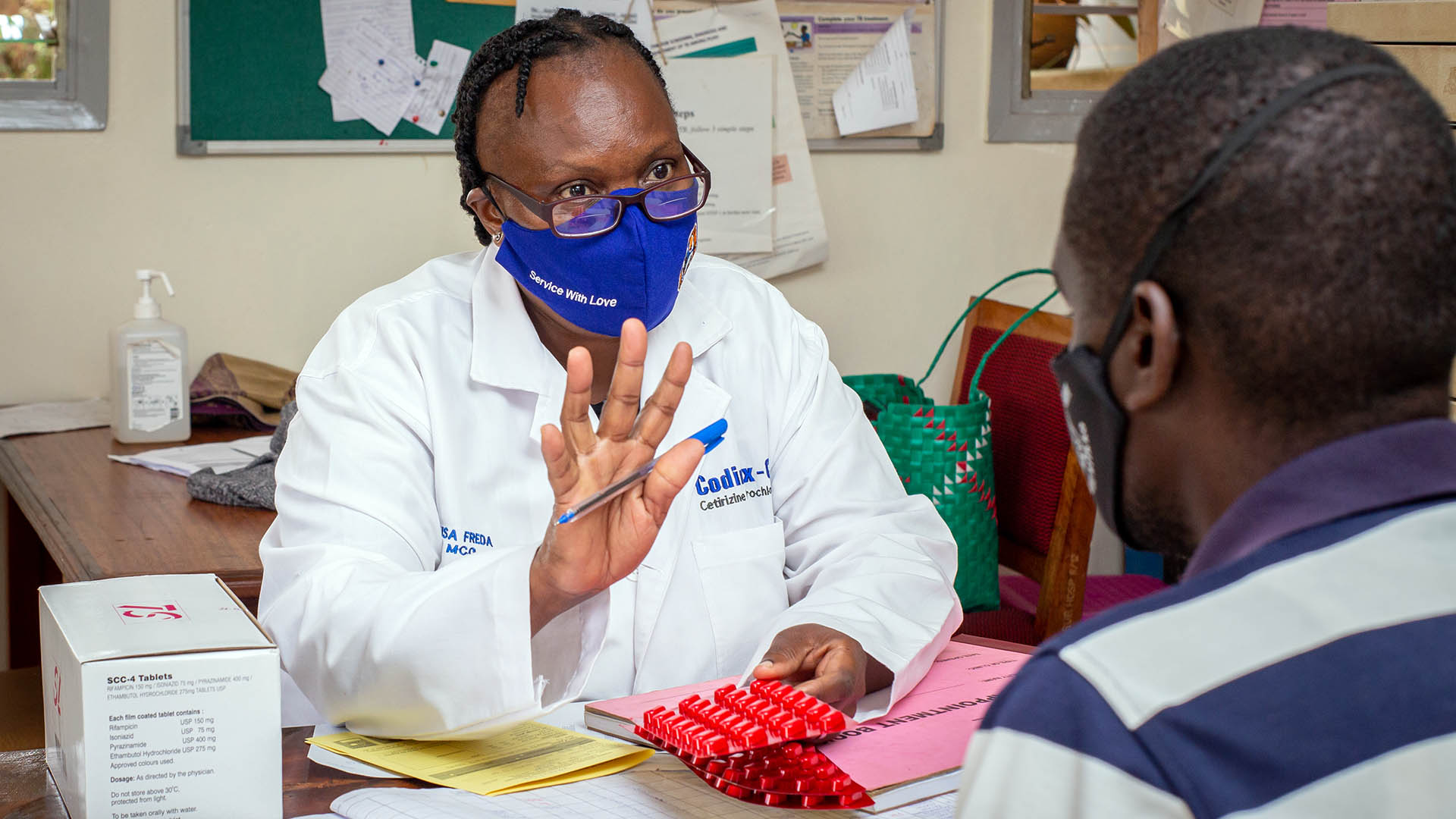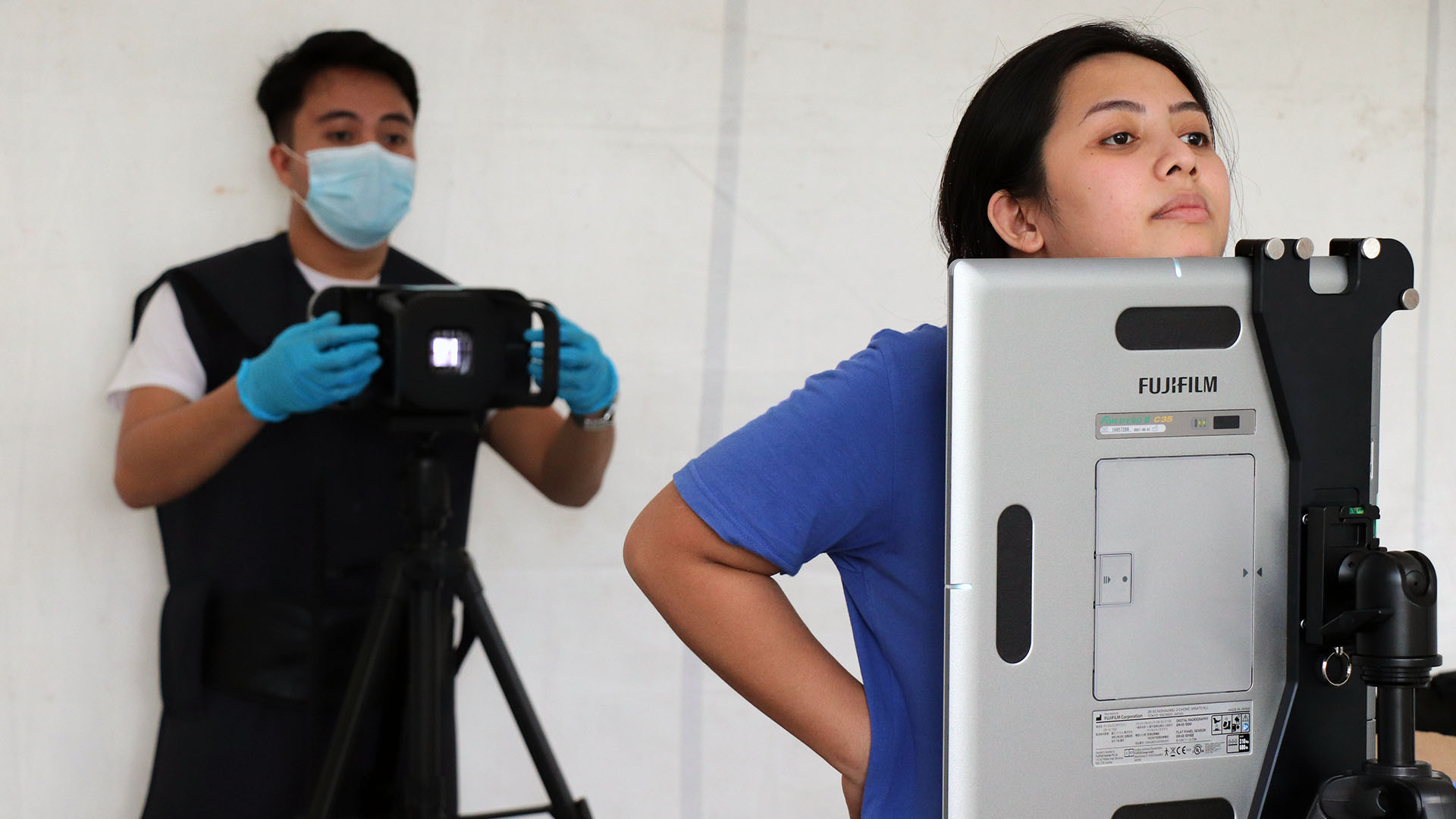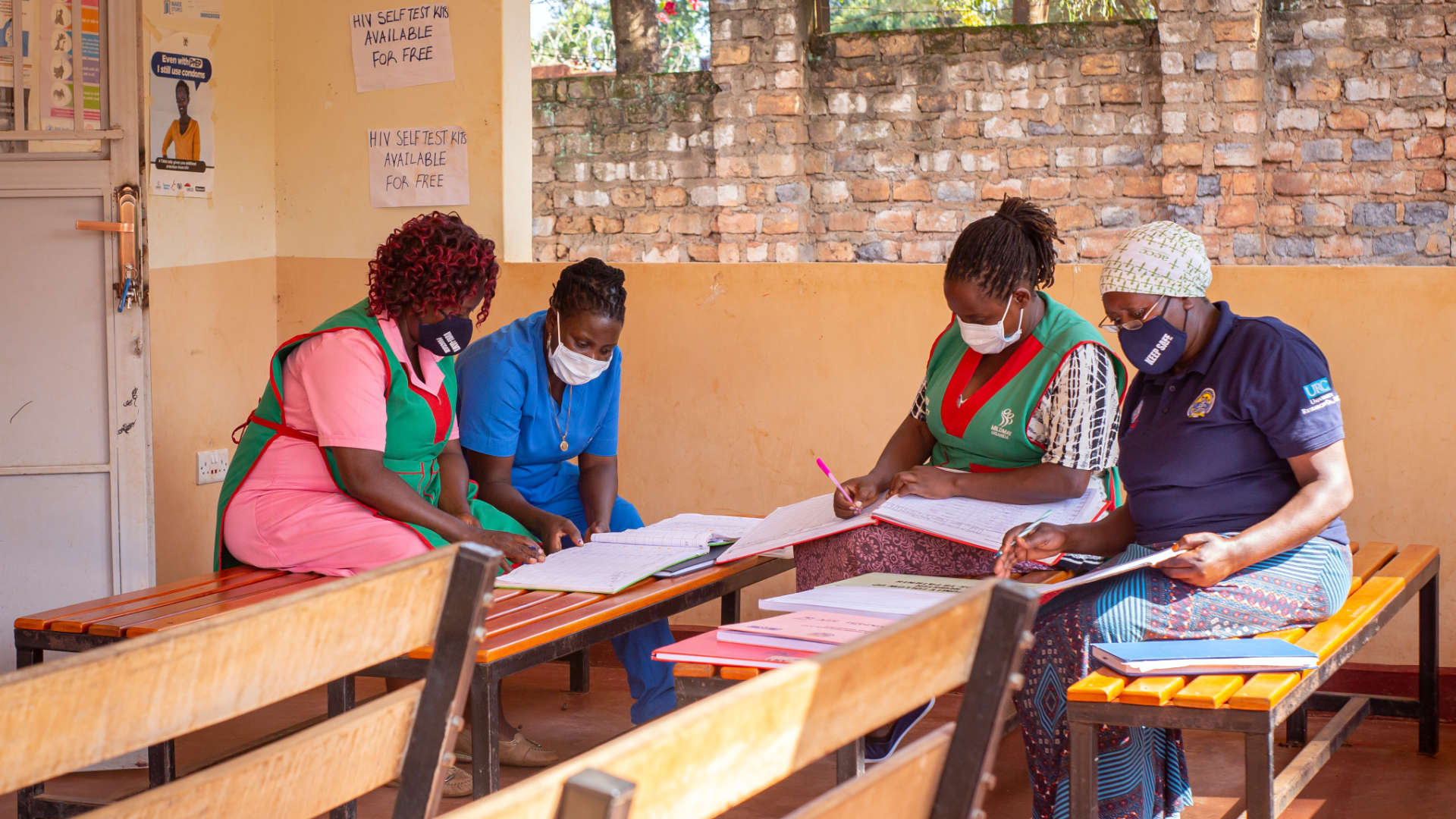The World Health Organization’s (WHO) End TB Strategy aims to reduce tuberculosis (TB) cases and deaths by 90% and eliminate catastrophic health expenditure due to TB by 2035. To achieve these ambitious goals, additional research is needed on new strategies to optimize the implementation of TB care services.
The WHO 2015 Global Action Framework for TB Research calls upon TB and TB/HIV high-burden countries to develop country-specific solutions by advancing research aimed at ending the TB epidemic. The framework outlines key steps to be undertaken by each country, including:
- Establishment of collaboration mechanisms between key stakeholders;
- Capacity building on research methods and implementation of research activities;
- Development of national research priorities;
- Pursuit of funding to undertake country-specific research; and
- Continuous monitoring and evaluation of the implementation of research activities.
In response, URC’s USAID Defeat TB Project in Uganda formed an operations research department in September 2017 to increase research output from both the project and the project’s partner, the Uganda National TB and Leprosy Program (NTLP). The aim was to formulate and answer implementation research questions to maximize scale-up of known interventions to improve TB care and treatment services.
The Research Approach and Implementation
During Defeat TB’s first year, the department worked with the NTLP to formulate priority questions for operations research. This work led to development of a national operations and implementation research agenda launched on March 24, 2019 – World TB Day.
This research agenda was closely aligned to the Uganda National Strategic Plan and guides TB implementing partners and research stakeholders on how to generate evidence to meet the strategic plan’s goals.
USAID Defeat TB’s operations research department has contributed to implementation of the national agenda by:
- Developing research studies to answer priority questions through analysis of routinely collected data and implementation of new research;
- Collaborating with partners to organize additional research studies, including with the Ministry of Health, NTLP, National TB Research Laboratory, the AIDS Support Organization, civil society organizations, and the Infectious Diseases Institute; and
- Instituting a platform within NTLP’s monthly research forum for the TB research community to provide updates on ongoing activities.
Results and Achievements
Defeat TB’s operations research team developed a patient-centered model for community-based management of multi drug-resistant TB (MDR-TB). This model considers patient preferences for community-based care, including preference for the type of health care worker, the location of care delivery, and additional support needed to enhance treatment adherence. Studies to test the feasibility and effectiveness of this model are ongoing and have the potential to facilitate the country’s transition from injection-based to oral regimens for the management of MDR-TB.
The Defeat TB operations research team has participated in other research collaborations which led to changes in national policy:
- In partnership with NTLP and the National TB Research Laboratory, the team coordinated the national evaluation of the early implementation of the lateral flow urine lipoarabinomannan assay (LF-LAM) for TB diagnosis. Findings led to the development of a revised implementation plan to improve access to LF-LAM for patients with advanced HIV disease. This plan was incorporated into the 2019 Advanced HIV Disease Management Guidelines;
- In collaboration with the NTLP, the Infectious Diseases Institute, the Central Public Health Laboratory and QIAGEN, the Defeat TB team took part in an assessment of the feasibility and acceptability of incorporation of Interferon-Gamma Release Assay (IGRA) testing into Latent Tuberculosis Infection (LTBI) management. The study findings – presented at the 51st virtual Union World Conference on Lung Health – showed that incorporation of IGRA testing into LTBI screening is both feasible and cost-effective. As a result, the Uganda NTLP has recommended the use of IGRA testing in screening of household contacts and health care workers; and
- In collaboration with the NTLP, Defeat TB was part of the development and implementation of an operational research study to roll out the modified all-oral short treatment regimen for MDR-TB. Uganda joined nine other countries in implementing this regimen. Results will be pooled to further inform the WHO MDR-TB treatment policy.
Defeat TB has coordinated monthly NTLP research forum meetings since April 2019. More than 25 presentations have been made by 15 organizations involved in TB research. resulting in a continuous and engaging learning platform.
In July 2019, results from the TB Ante vs. Postpartum Prevention with isoniazid (INH) in HIV Seropositive Mothers and their Exposed infants (TB APPRISE) trial were presented to policymakers. Discussion on the implication of the results with key policymaking bodies, including the AIDS Control Program, the U.S. Centers for Disease Control and Prevention, and the National Coordination Committee, has resulted in incorporation of the results into the national INH guidelines to withhold provision of INH to pregnant mothers until 12 weeks postpartum.
Defeat TB’s operations research team has actively documented implementation and research outputs in abstracts submitted to national and international conferences and manuscripts to peer-reviewed journals. More than 60 abstracts showcasing the project’s achievements and innovations have been accepted for presentation and the team has submitted two manuscripts to peer-reviewed journals.
Sustainability
USAID Defeat TB’s work to support the national research agenda has galvanized a consortium of national research partners who will continue to carry out research for better implementation of TB services. The implementation of research studies to address research priorities will continue past the project’s lifetime. The project has built the capacity of the NTLP to conduct and document research and to mobilize funding for research activities. These skills will ensure that critical research continues to help hasten the end of the epidemic.



